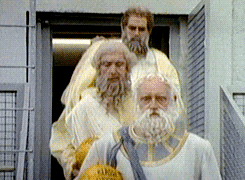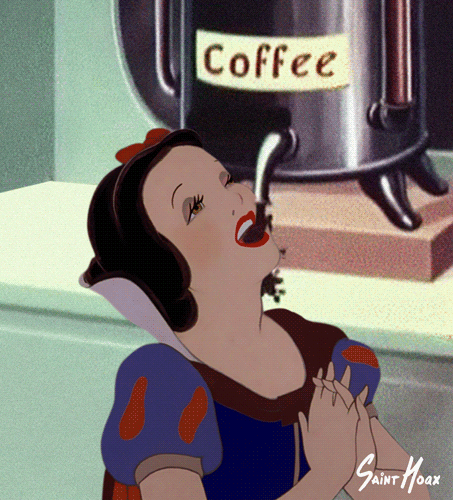Why Angel City matters; Eni Aluko’s plan; Should women’s football be the same or different; #WhereIsPengShuai; Fun with philosophical divides; What’s the point of the Olympic Channel; Better betting
The newsletter of the podcast
Before we get going, this is the most important sports business question of this or any other week.
The same or different pt 1: Why Angel City matters
The women’s football market is becoming the sports business’ favourite sandbox. We’re at the point where anything’s possible.
This means the strategic choices made today will have a disproportionate impact.
Which brings a tricky second question: are they doing it right?
Decisions by execs at the major properties - The FA WSL, NSWL, FIFA World Cup, UEFA Euros and Champions League - will shape women’s football in a more fundamental way than equivalent decisions in the men’s game.
By contrast, the tedious machinery of governance means the sports business is - like any business sector or area of policy - deadly slow to change.
So, the stakes are high and mistakes will carry a cost.
As the most interesting new entrant to team sport anywhere, Angel City is a microcosm of this question.
Brand = Product + Story
Angel City was a global brand on launch day.
It’s a football team with a story built in. 11,000 season tickets have already been sold. Off plan. The team doesn’t exist until next year.
What if the purpose is more interesting than the team?
Women are Angel City’s Why, throwing off a thousand comms themes: female ownership and it’s impact on culture; empowerment; female representation on the board and in the C-Suite; Serena Williams meets Natalie Portman, the cultural melting pot of sporting and Hollywood royalty with Silicon Valley tech money and LA street culture. That’s a lot of storytelling material to be staring with.
And that’s before we get to the actual football…
Which brings us to the job facing Eni Aluko, the England, Chelsea and Juve star who is now Sporting Director of Angel City and this week’s podcast guest.
She’s got a clean slate and is currently going around the world buying up a squad of players.
But will they be any good, you know, as a football team?
Will they win? And more than that, will they play a style of football that fits the brand? What sort of player is an Angel City player?
The risk, outlined by Aluko, is that people think they’re ‘a new shoe brand or a lifestyle product, not a football team’.
This gets to another question, what if the story is stronger than the sport?
Does that matter?
Will The Why get in the way of the what and the how?
I’ve always thought this about Formula E - what happens if the purpose is more interesting than the sport - and asked this question to Marcus John, an early stage investor in Formula E and ExtremeE - hear here UP Pod 127.
The same or different, pt 2: Philosophical divides
There’s a divide emerging.
Should women’s football be a version of the men’s game or different?
Eni Aluko wants double headers in the WSL, building an audience that leverages off the men’s team brands. Same kit, same crowds, same media partners.
Proof of concept: Wimbledon, The Olympics, The Hundred.
Maggie Murphy wants separate identities, different match day experiences, freedom to experiment, and to reach new audiences beyond the age old football tribes.
Proof of concept: WTA, Netball Superleague.
Murphy and Aluko want the same thing: for the women’s sports economy to prosper and sustain the professional game over the long term.
They just disagree on how to get there.
The same or different pt 2: Women’s football and betting
Men’s football is a betting product. Much of what we dress up as fan engagement or the passion of the fan is in reality, betting addiction or a weaker variant.
So what role should betting play during this important construction period of the women’s football economy?
Patrick Massey of Portas Consulting has put some facts in to the debate, and points out that it’s about audience, the current one and the (near) future one.
A recent study showed that over 80% of Gen-Z agree that being able to bet on a sports league makes them more likely to be a fan of the league.
However, what makes women’s sport especially attractive to broadcasters and commercial partners is its ability to attract and offer a unique audience - one that is younger, more female, and more digitally savvy than many men’s sport. Is betting effective in driving engagement in this context? On the one hand, in the U.K., more men gamble than women and over 54% of gambling is done by people aged 35 – 55, with only 16% done by a younger age group (16-24). On the other hand, 70% of weekly sports bettors sit down to watch the full game, whereas only 48% of fans who do not gamble on sports do so
The betting argument tends to run on moral lines: Women’s football should be better than the men’s game. Betting is bad, women’s football should be clean.
Is this true, or just a middle class fantasy?
Or…is there a route for women’s sports governing bodies to do betting better?
Maybe.
Patrick Massey again:
European Golf have recently partnered with more data companies but only with the guarantee that all bets are positive. You can bet on a golfer to make a birdie but not a bogey. 25% of all money spent in the National Lottery goes to good causes. The horseracing industry in Hong Kong brings in 100% of its betting revenue as it owns the betting platform itself so can reinvest this money into the sport and wider social development.
What about fantasy sports? The Fantasy Premier League has over 8 million players globally. Fantasy players are >60% more likely than average to watch highlights online multiple times a day and around 4/10 sports fans who play fantasy sports say it adds to the excitement of sports events.
These examples suggest there is a way to make betting better.
The same or different pt 3 - Coffee or beer v coffee and beer
At the ICC Women’s World Cup final at Lords, sales of coffee outstripped sales of beer. (HT Zarah Al Kudcy, UP Pod 119).
QED, the fans are different: More women with families, less blokes and their mates.
Eni Aluko wants double headers in the WSL and NSWL.
Can these two groups - coffee and beer - co-exist in a football stadium on derby day?
Is there an appetite for longer match days in the NASCAR, NFL tailgate mode?
Maybe. But do I want to watch two games back to back. And do I want mums and kids anywhere near Euro2020 Arseflame guy?
The same or different pt 4: Governing body owned or private equity
Sport’s peculiar love affair with private equity gives off palpable ‘be careful what you wish for’ feels.
Read: Barbarians at the Turnstiles
See also: tomorrow’s podcast with Michel Masquelier, former IMG Media head honcho, on private equity in sport
Sportsbiz Lingo: Cryptodiligence
Meaning: the job of finding out who’s behind the new fan engagement partner, where the money is, and whether you’re going to get paid and exactly whose money is it anyway.
Strategy: Do this before you open up your fan database to people who may or may not exist, or are a front for something.
Click to subscribe, Call to cancel: Lessons from journalism in the dark arts of D2C subscriptions and churn mitigation
News reaches us from sports near future, courtesy of research in to the reality beneath the OTT dream.
Warning, contains the following words and phrases:
Dark patterns; retention tactics; customer irritation; straight up illegal.
Ongoing questions: What’s the point of the Olympic Channel?
From Nick Meacham’s excellent new Streamtime pod series, Olympic Channel’s Mark Parkman said:
“The strategy right now is that we continue with our rights holding broadcasters for the widest possible distribution possible,” he said. “Live sport is still predominantly [viewed] on linear television, and I don’t see that necessarily stopping in the next five to eight years. Some of our broadcast partners are with us until 2032 and we want to support them and drive more people to their platforms.
So, no using the OC to create competitive tension in the rights market, which is one of the key justifications for most other sports OTT plays.
The IOC has built a very expensive Red Bull-esque content house pushing IOC derived content out to NBC and other rights holding broadcasters.
Note: NBC’s deal runs out in 2032. What will the sports world’s most ambitious D2C play do then?
What will the sports media landscape even look like in 2032?
The Olympic Channel feels like the sort of project people create when they’ve got billions coming in the door and 12 years of cover from having to make a decision.
Enjoy the Unofficial Partner newsletter? Tell your friends
Subscribe to the Unofficial Partner podcast.
Help us game the Substack algorithm by liking this newsletter and spread the word on social media.
Follow @RichardGillis1 and @PaulPingles (aka the ill-judged Twitter handle of Sean Singleton, the UP co-founder).
Read over 100 gushing five star reviews for UP on Apple Podcasts - click the link to add yours.










